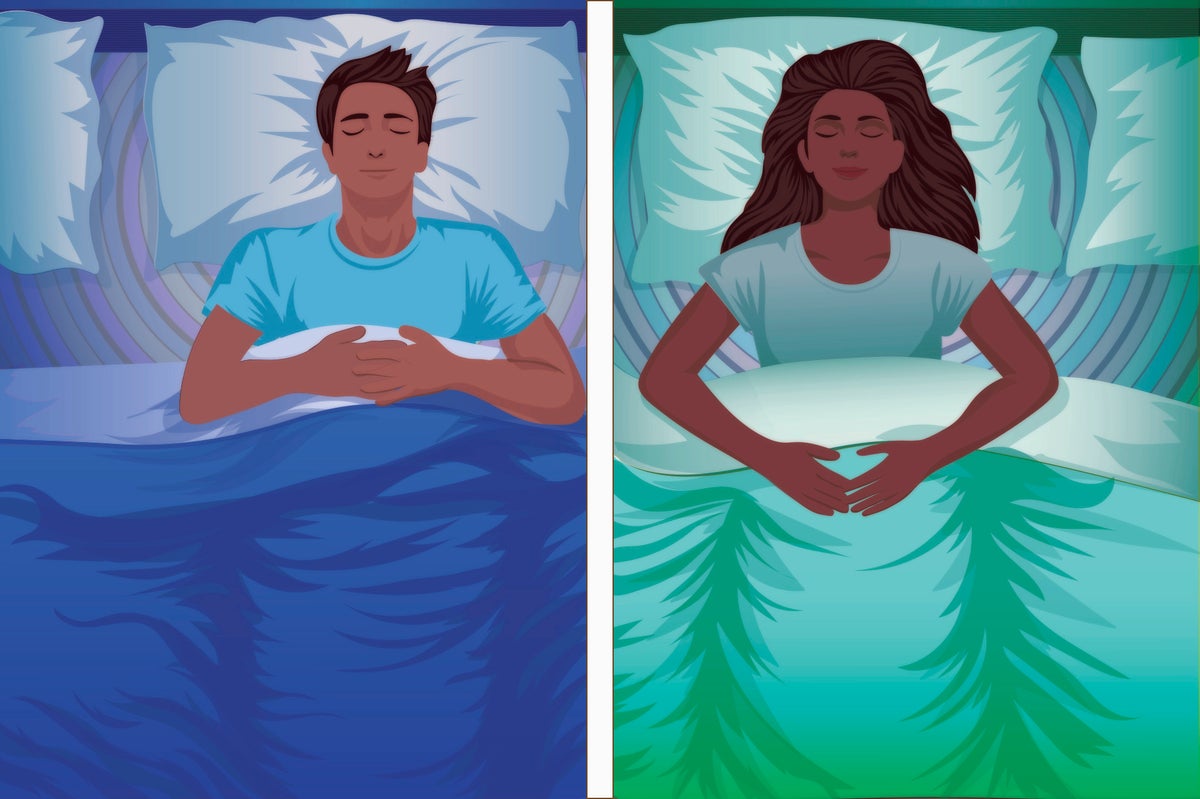
Michael Solender and his wife have been together for 42 years; they slept in the same bedroom for the first decade, moving to separate rooms after that.
machine.
Back at home due to other problems. He's generally warm in the evenings and she normally feels chilly.
“For us, having separate bedrooms is simply a healthier and more positive way to be in a relationship,” said Solender, 66. “There's no shame attached to that. There's no stigma.”
Snoring, temperature changes, "cover stealers", and restlessness that involves rolling over frequently often cause partners to sleep apart. Other factors at play include illness, inconsistent work shifts, and partners who go to bed and get up at different times.
According to an American Academy of Sleep Medicine investigation from last year, they have found that some people occasionally or regularly sleep elsewhere such as a spare bedroom or sofa to accommodate a sleep partner. It is typically men who tend to choose this arrangement.
And, perhaps somewhat astonishingly, it's the younger generation who do it the most, rather than older people.
Dr. Seema Khosla, a pulmonologist and spokesperson for the academy, stated that obtaining satisfactory sleep, typically seven to eight hours per day for adults, is crucial for maintaining healthy relationships.
It has been pointed out by Khosla, the medical director of the North Dakota Center for Sleep in Fargo, that individuals who persistently suffer from poor sleep are more likely to experience disputes with their partners.
“It's really a matter of people prioritising their sleep,” Khosla said. “I've had patients who have been married for 60 years and they're adamant that having separate bedrooms has been a factor."
She said that sleeping in separate rooms is probably more common than most people imagine.
The same applies to sleep apnea, a major cause of loud snoring, Khosla stated. Solender went to see a sleep specialist after realising the effect sleep deprivation had on himself and his wife.
I'd wake her up and wake myself up," he said. "I never realised I had sleep apnea. I believe it started approximately 20 years prior, I kept falling asleep at red lights. I was falling asleep while watching TV or sitting up reading a book. I felt perpetually exhausted, which is when I knew I had a problem.
Key to making separate sleep spaces work is opening up a conversation about it beforehand, as Solender did with his wife.
“Crucially, it’s not about sidestepping closeness. It’s your acceptance that you can experience closeness and enjoy shared moments together, but simply resting apart afterwards. This part of our discussion is vital and for mutual understanding, both partners must get on the same page.”
She has noticed some hesitation among her patients when she suggests sleeping apart.
“It’s usually a partner who’s snoring or someone who’s woken up by their partner’s alarm going off at 4 in the morning, or something similar. We discuss it and people will immediately argue saying, no, that won’t work for me,” she said.
Some, Khosla said, “will sit with it for a minute and they’ll ponder it, and you can tell they're thinking, I would really like to do this, but how do I discuss it with my partner?”
Tracey Daniels and her husband had been sleeping in separate beds for around four years. Initially, there wasn't much discussion about it; she simply drifted off to the guest room.
My husband is a dreadful snorer, but also I'm a very restless sleeper," said Daniels, who resides in Tryon, North Carolina. "He could drop a paperclip on a carpeted floor and I would wake up.
She later stated that she began a conversation after being diagnosed with breast cancer and underwent surgery.
“He looks after me and gives me a kiss at night,”
They take their three dogs for a turn to sleep.
Dr P Ch. Zee, chief of sleep medicine at the Northwestern University Feinberg School of Medicine and director of the sleep clinic at Northwestern Memorial Hospital in Chicago, mentioned that sleep separation is a common problem in her line of work.
It would be a good idea to talk about sleep routines before getting married. Often, couples only do this after they've been married or have been together for a period of time and then struggle to resolve their differences.
By middle age, Zee mentioned, sleep quality has diminished.
"People are more susceptible to problems like insomnia or sleep apnea. That gets quite troublesome," she said.
There's nothing to be ashamed of about sleeping in separate beds, but Zee points out that technology has made sharing a bed easier in some respects. Devices that produce white noise, cooling pillows and bedding, mattresses with twin temperature controls, and dual control electric blankets can be of assistance, according to Zee. Some couples have found that giving up shared blankets and using personal bedding has improved their sleep.
"There is a whole market out there that could help mitigate some of these issues," she said.
Sleep separation has become more widely accepted as people have become more aware of the need for quality sleep as a vital aspect of overall health, Zee stated.
In contrast, there's evidence to suggest having sex before sleeping can have some advantages," she said. "In summary, probably the top priority is to seek expert guidance before taking a decision. Do the issues indicate a sleep disorder that can be effectively treated?
.


